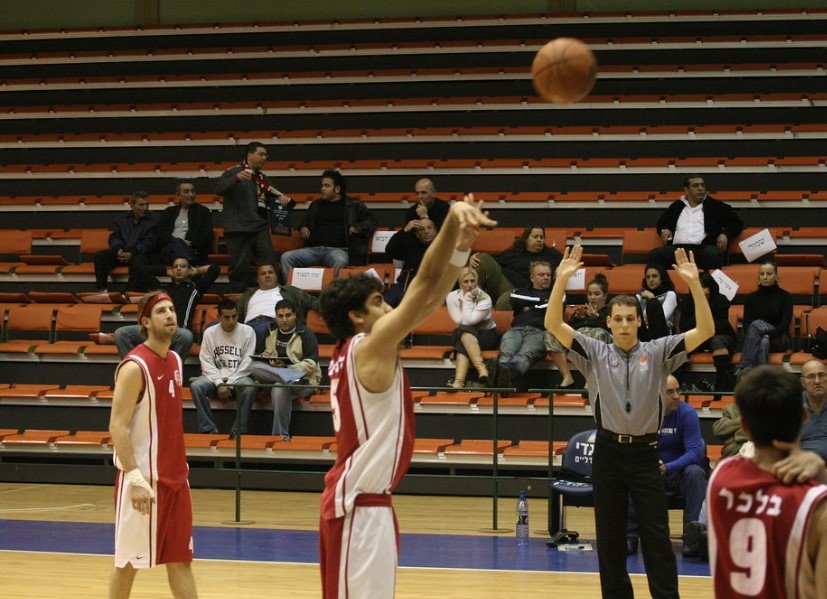Two more wins. That’s all it’ll take for Hapoel Tel Aviv to crash the gates of European basketball’s elite club for the very first time. And if they pull it off, no one will be celebrating louder than team owner Ofer Yannay — the man who gambled big on a dream many thought was far-fetched.
From Longshots to Finalists — The Dream Is Real
It’s hard to overstate what’s at stake. A EuroCup title means automatic entry into the 2025/26 Euroleague, the basketball equivalent of the Champions League. For Hapoel Tel Aviv, that would be uncharted territory.
This week, the team entered the best-of-three EuroCup finals series against Spanish side Gran Canaria with real momentum. They also hold a key advantage: if it goes to Game 3, they’ll have home-court — though “home” is now Samokov, Bulgaria, thanks to ongoing security concerns in Israel.
Even so, the Reds aren’t flinching.
For years, the club existed in the shadows of Maccabi Tel Aviv, its wealthier and far more decorated city rival. But under Yannay’s leadership, Hapoel has quietly — and now, loudly — built a squad capable of competing on the continental stage.

Ofer Yannay’s Risky Investment Is Paying Off
When Ofer Yannay took over ownership, few could’ve predicted this turnaround. Back then, Hapoel was still climbing out of the domestic second division. The idea of competing in Euroleague? Fantasy stuff.
But Yannay didn’t think small. He poured in funds, revamped the club’s infrastructure, brought in top-tier talent, and made sure the team had the tools to win. Not just in Israel — but abroad.
There were skeptics, sure. Many called it reckless. Others questioned whether Tel Aviv had the fan base or international pull to sustain top-flight European competition.
One win in Bulgaria and another in Spain (or back in Bulgaria for Game 3), and Hapoel Tel Aviv will be booking flights to Euroleague venues from Madrid to Belgrade come October.
Security Woes Shift the Game to Bulgaria
Of course, none of this is happening under normal circumstances. Due to the current situation in Israel, Games 1 and 3 of the finals are being played in Bulgaria. Not ideal — but the players seem unfazed.
In a press briefing before the series, head coach Danny Franco acknowledged the logistical challenges but stressed the team’s focus.
“All we can do is control what happens on the court,” he said. “Wherever we play, we play as Hapoel.”
That sense of unity has been a recurring theme all season.
-
The squad’s core includes several rising Israeli talents
-
A handful of seasoned Euro veterans bring composure in clutch moments
-
Yannay’s leadership has created a stable, forward-thinking front office
Playing away from home may hurt the atmosphere, but not the mission.
Club History: From Glory Days to Modern Surge
Hapoel Tel Aviv isn’t exactly a minnow. Founded in 1935, the club has a rich domestic legacy, but for decades, it was mostly defined by local rivalries and short-lived cup runs.
Internationally, their resume has mostly featured participation in second-tier European competitions like the FIBA Europe Cup and Balkan League. Success, when it came, was fleeting.
But in the last few years, things have shifted. Since rejoining Israel’s top division, the team has consistently improved its standing. This year’s EuroCup campaign — filled with gritty wins and fourth-quarter comebacks — has turned heads across Europe.
Here’s a snapshot of their path to the finals:
| Stage | Opponent | Result |
|---|---|---|
| Quarterfinals | Cedevita Olimpija | 2-1 Series Win |
| Semifinals | Paris Basketball | 2-0 Series Win |
| Finals (TBD) | Gran Canaria | Series ongoing |
Euroleague Within Reach: What It Means for Israeli Basketball
Make no mistake, Hapoel’s rise is bigger than one club. If they make it, they’ll become the second Israeli team in the Euroleague, joining perennial powerhouse Maccabi Tel Aviv.
That could usher in a new era for Israeli hoops — more exposure, bigger sponsorships, and a wider spotlight for homegrown talent.
Gran Canaria is no pushover. The Spanish side boasts EuroCup experience and has played on this stage before. But Hapoel? They’re hungry, fired up, and, frankly, tired of being second-best.
